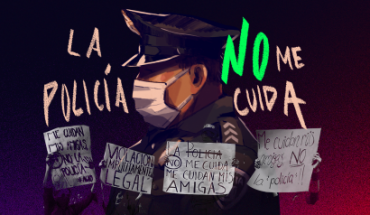As we know, the results of the recent delivery of the Center for Public Studies (CEP) survey did not only bring bad news to the government. The data also seem to confirm that the relationship between politics and citizenship was irretrievably broken. We would be entering a period of political interregno.
In his Prison Notebooks, Gramsci developed his reflections on the reality and concept of crises and described it as that interregno in which the old agonizes and the new cannot yet be born, and added that, in such a circumstance , a wide variety of morbid symptoms appears, a series of social diseases. We must ask whether one of these corresponds to the end of the mapping of the traditional system of political parties.
The 2% confidence in the parties reported by the CEP and the series of other opinion studies and longer-standing work confirm that the main agents of our democracy show unequivocal signs of exhaustion. The data consistently highlight the galloping crisis of representation and the growing lack of connection of parties with their traditional electorate.
We are facing a crisis in the traditional party system. Discredit, loss of relevance and fragmentation give an account of its depth. It departed years ago with the estrangement of civil society parties and their social institutions. Also, as more and more are trapped in the world of government and the state and thus control of the parties will be exercised from the Government, weakening the function of identifying and representing the social interests and demands that traditionally intermediate.
The parties governmented: they stopped representing interests and are engaged only in governing. Their role has historically slammed the party’s needs into functional processes in government and Congress. A separate issue is the practices of client customers and the capture of partisan machinery by oligarchs, which allows them a monopoly of the applications and, therefore, of representation and access to public power. Herein lies the master key to our current partycracy.
However, in contexts such as the current, defius and disregard of the political class and parties, a window of opportunity seems to be opening up for independent parties and movements, as well as systemic and non-reportalists.
64% support for democracy, according to the CEP, shows that what is being questioned is not in democracy (concrete legitimacy), but in its experience in terms of results to solve social problems (diffuse legitimacy). Citizens do not seek to resign from electing their representatives, but now seem more willing to support candidates or parties that offer options other than traditional ones to deal with public problems.
It is in this context that the emergence of partisan or non-partisan electoral alternatives may take place, which challenge the prevailing idea of how to do politics, which is expressed in the crisis of legitimacy of traditional political institutions and in growing distrust of the parties. It is not democracy that seeks to make itself disappear, but the old practices of doing politics, which are beginning to be abandoned or replaced by new forms of social organization, by parties or organizations. They seek to compete within the rules of the current electoral game, submitting to their nominees, or by non-party citizens seeking to use the forms of independent candidacies that allow, albeit with restrictions, the current legislation with their modifications still under discussion.
We should read the bet of James Hamilton and his Party for Dignity as a clear attempt to contest the spaces of representation, which seeks to take away from traditional parties the real monopoly of representation, a monopoly that begins to be broken so much by the emergence of new communities, as by separatist candidates in times of crisis of credibility of traditional parties, politicians and democracy itself.
It is still too early to venture if we are facing a funeral or baptism, in the face of a new cycle or a inflection of the present. What we are beginning to observe is that the Dignity Party and others that emerge are expressions of the end or the transformation of the current mapping of the post-transition party system.
We must be clear, what is installed is the idea, not of the end of democracy, but of its implementation by parties and organizations that often do not share its essential value.





